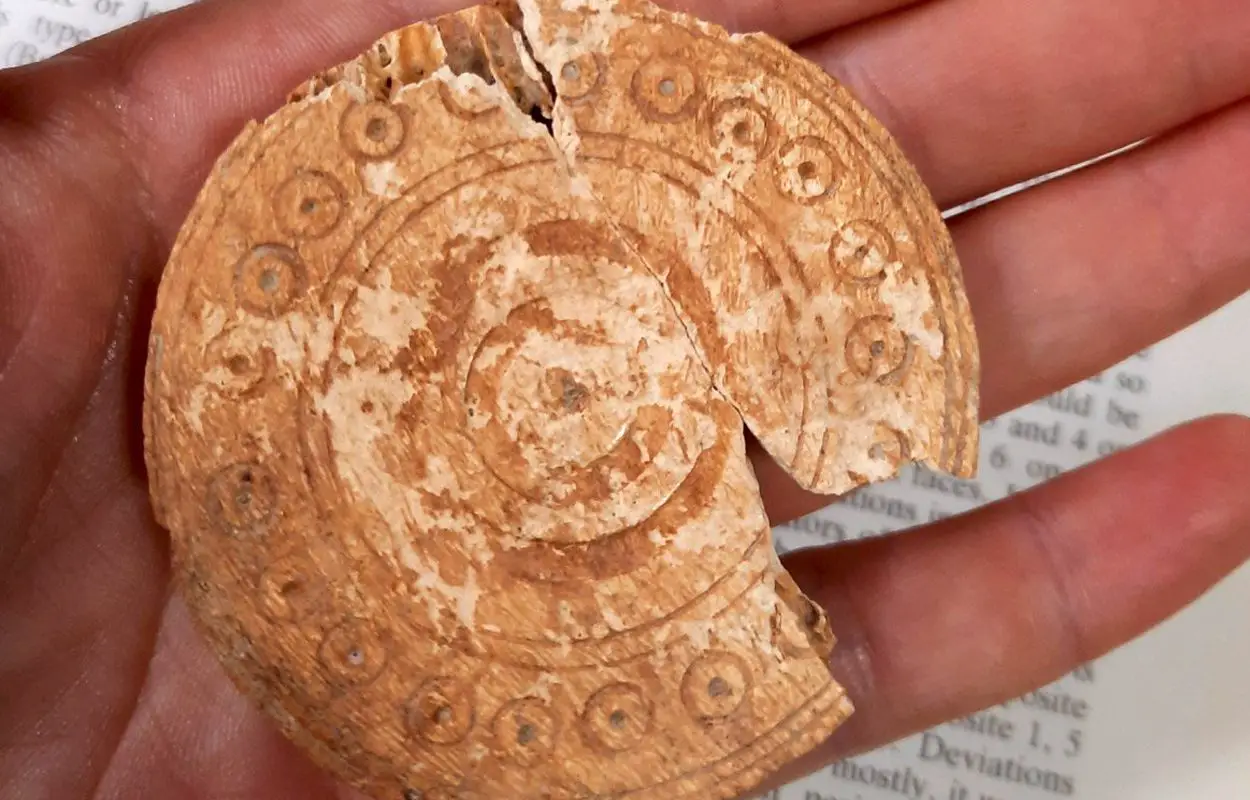Archaeologists have discovered a tableman gaming piece during excavations of a medieval building in Bedfordshire, England.
Excavations were conducted by Cotswold Archaeology in preparation for a housing development by Taylor Wimpey at Bidwell West, located next to Houghton Regis and Dunstable.
The team found a medieval timber-framed building and a series of medieval enclosure ditches, in addition to the tableman which was made from a cattle mandible.
Tablemen were used to play various board games, where two players would typically roll dice and move their pieces across rows of markings. The word ‘tables’ is derived from the Latin tabula which primarily meant “board” or “plank” and was first introduced to Britain during the Roman period.
One of the more popular table games played by the Romans was the Ludus duodecim scriptorium, which translates as “game of twelve markings”, a game played using three cubic dice and each player having 15 pieces.
It is likely that the game ‘tabula’ was refined from Ludus duodecim scripta and continued to be played into the medieval period. Tabula is much more similar to backgammon and uses two rows of twenty-four points.
The tableman from Bidwell West has a diameter of nearly 6cm and is decorated on the face with concentric circles and a ring-and-dot design. Similar examples in both size and decoration style have been found at sites across England which became common during the 11th to 13th centuries.
According to the excavation team: “It is not always possible to identify which game the gaming pieces recovered from archaeological excavations would have belonged to, because there is often no surviving board. It is however likely, due to the association with the medieval site, the style of decoration, and the size, that our gaming piece would have been used to play tabula during the medieval period.”
Header Image Credit : Cotswold Archaeology







